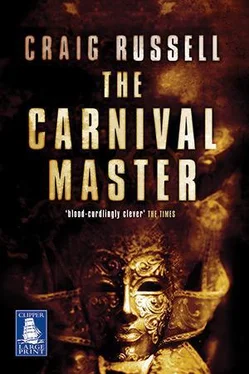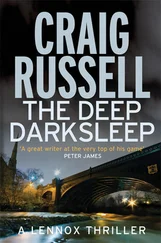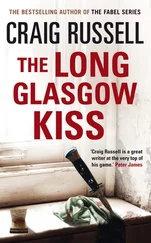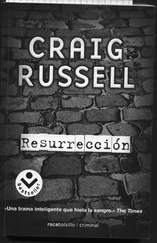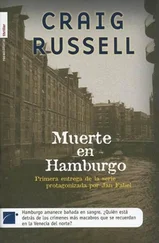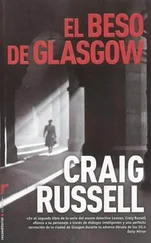Craig Russell - The Carnival Master
Здесь есть возможность читать онлайн «Craig Russell - The Carnival Master» весь текст электронной книги совершенно бесплатно (целиком полную версию без сокращений). В некоторых случаях можно слушать аудио, скачать через торрент в формате fb2 и присутствует краткое содержание. Жанр: Триллер, на английском языке. Описание произведения, (предисловие) а так же отзывы посетителей доступны на портале библиотеки ЛибКат.
- Название:The Carnival Master
- Автор:
- Жанр:
- Год:неизвестен
- ISBN:нет данных
- Рейтинг книги:3 / 5. Голосов: 1
-
Избранное:Добавить в избранное
- Отзывы:
-
Ваша оценка:
- 60
- 1
- 2
- 3
- 4
- 5
The Carnival Master: краткое содержание, описание и аннотация
Предлагаем к чтению аннотацию, описание, краткое содержание или предисловие (зависит от того, что написал сам автор книги «The Carnival Master»). Если вы не нашли необходимую информацию о книге — напишите в комментариях, мы постараемся отыскать её.
The Carnival Master — читать онлайн бесплатно полную книгу (весь текст) целиком
Ниже представлен текст книги, разбитый по страницам. Система сохранения места последней прочитанной страницы, позволяет с удобством читать онлайн бесплатно книгу «The Carnival Master», без необходимости каждый раз заново искать на чём Вы остановились. Поставьте закладку, и сможете в любой момент перейти на страницу, на которой закончили чтение.
Интервал:
Закладка:
3.
Leave it, he thought to himself. Let it lie.
It had still been reasonably early by the time Fabel got home. Bartz had wanted to spend more time together at the bar after the meal, but Fabel explained that he had an early start in the morning. He had a report to write out on the Aichinger incident. Bartz had sighed and said, ‘Never mind…’ but had skilfully communicated a growing impatience with his soon-to-be international sales director.
Susanne had come over to Fabel’s place after work. He hadn’t seen her all that day: she hadn’t been in the Presidium but had instead been working at the psychiatric department of the Institute for Legal Medicine in Eppendorf. He poured them both a glass of wine while he waited for her to come out of the shower. He gazed out of the tall window that looked out over the Alsterpark and the dark glittering shield of the Alster lake beyond it. He loved his apartment. He had landed it through bad luck and good timing: his marriage had collapsed just as the Hamburg property market had hit an all-time low. It had still been a stretch on his Principal Chief Commissar’s salary, but it had been worth it. It had, however, been very much a place for one. His personal and undivided space. Now, with his change of career, had come another change: the decision that he and Susanne should sell their respective apartments, find somewhere new and move in together. Another decision that had seemed so clear at the time yet now lay shrouded in doubt.
Fabel watched the distant moving twinkle of car headlights along the Schone Aussicht on the distant shore of the Alster. He thought of his meal with Bartz. Of his future. Of the file that lay dumped on the coffee table yet filled the room with its presence. If I pick it up, he thought, I’ll be sucked into it all again. Leave it. Let it lie.
Susanne came into the room and Fabel placed a Hamburger Morgenpost on top of the file. He turned and smiled. Susanne was beautiful. Smart. Sexy. Her long thick hair was wet and hung over the shoulders of her white towelling bathrobe in glossy black kinks. She sat down on the sofa and he handed the glass of wine to her.
‘Tired?’ he asked, sitting down beside her on the sofa.
‘No. Not really.’ She smiled languidly.
‘Hungry?’
‘Oh yes,’ she said and pulled him towards her, allowing the bathrobe to fall open.
4.
Timo had found the book dumped in a skip near the university, behind a house that was being renovated. It was an academic tome, an old copy, and its cover still felt gritty from the skip beneath Timo’s fingertips, but it was similar to the one he used to have. The one he had sold along with so many of his other belongings. He had first read it while he had still been studying philosophy at Hamburg University. It was Emile Durkheim’s Rules of Sociological Method: a treatise on social order; on the need for structures and forms to guide behaviour. Durkheim was considered the father of sociology, but Timo thought with irony how much more appropriate it would have been, given his current situation, if it had been Durkheim’s later work, On the Normality of Crime, that he had uncovered.
Timo shivered in his inadequate jacket and leaned against the wall, gazing across at the store. It was getting dark and the lights in the store came on, turning the windows into warm embers in the January evening. Timo tried to read another page, but the light had faded too much. He sighed. The book had been a piece of his past that had fallen unexpectedly and unbidden into his present. It pained him to look at it: a reminder of a time when he had had hope, when his mind had been sharp and clear and organised. A time before. As if to snap him back to the reality of his current life, the gnawing pain in his gut intensified and the shivers that convulsed his body were not caused by the cold evening alone. He closed the book. He couldn’t take it with him, but he didn’t want to let it go. He didn’t want to let his past go.
Max Weber, Ferdinand Tonnies and Emile Durkheim had provided the focus for Timo’s studies. Max Weber’s State Monopoly on Physical Force had been the basis for his thesis. Or at least the thesis he had started.
There were too many customers in the store. He’d have to wait. The cold seemed to penetrate his flesh and chill his bones. Weber’s hypothesis was that only the organs of state, the police and the army, should be permitted to use physical force; that otherwise anarchy reigned and the state was unsustainable. Timo had planned to posit, in his thesis, that such a monopoly could also be destructive to the state, as in the case of the Nazis.
A man in a business suit left the store, talking into his cellphone, followed by an older couple. The ache and the craving that burned in Timo’s gut intensified. He slipped his hand into the pocket of his jacket and closed his fingers around the chill, hard steel.
Timo had also planned his thesis to balance this argument with a discussion of the United States, where the Constitution expressly allowed the citizen to bear arms, and therefore the means of independent physical force; consequently denying the state a monopoly on it. Yet the US existed and thrived as a nation.
He looked across the street. A car pulled up and a woman trotted into the store. She re-emerged a few moments later with a carrier bag and drove off. Timo felt a pang of something other than his body’s craving. It was his grief, his mourning of his past-tense self: the disciplined, clear-eyed, organised philosophy student with the world at his feet. But that had been then. Before the drugs.
Timo stepped out of the shadow of the corner, his thin shoulders hunched against the cold, and made his way across to the store, his fingers closing around the gun in his pocket.
5.
After they had made love, Fabel and Susanne sat in the living room of his flat and looked out over the dark water of the Alster and the glittering reflections that played on it. Susanne leaned her head on Fabel’s shoulder and he did his best to disguise the fact that for some reason he didn’t want her there. The feeling surprised him. He felt restless and irritable and had, for a moment, an almost irresistible urge to get into his car and drive out of the city, out of Hamburg, out of Germany. He’d had the feeling before, but he had always put it down to his work; an urge to put the horror and stress of it all as far from him as he could. But wasn’t that exactly what he had achieved? He had only a few weeks left to go and his escape would be complete. So why did he feel so panicky? And why was it, when he was supposed to be relishing a life free of murder, that he could not shake the call of the file he had half-hidden under the copy of the Morgenpost?
‘How was dinner with Roland?’ asked Susanne.
‘Wordy. Bartz likes to chat. I don’t know if he’s that keen on listening but, boy, can he talk.’
‘I thought you liked him.’ There was an edge to Susanne’s voice. Fabel had learned to be careful when talking about his new career with her: recently, any lack of conviction in his tone had been enough to start an argument.
‘I do. I mean, I did when he was a kid. But people change. Roland Bartz is a very different person now. But he’s okay. Just a bit full of himself.’
‘He’s an entrepreneur. It goes with the territory,’ said Susanne. ‘His company wouldn’t be so successful – and he couldn’t offer you the salary he’s offering – if he was riddled with self-doubt. Anyway, you don’t have to love the guy to work with him.’
‘There’s not a problem,’ said Fabel. ‘Honestly. And don’t worry, I’m not having second thoughts about leaving the Polizei Hamburg. I’ve had a bellyful.’ He took a long sip of Pinot Grigio, leaned back against the sofa and closed his eyes. The picture of sad, desperate, insane Georg Aichinger filled his mind. The same image that had haunted him throughout his dinner with Bartz.
Читать дальшеИнтервал:
Закладка:
Похожие книги на «The Carnival Master»
Представляем Вашему вниманию похожие книги на «The Carnival Master» списком для выбора. Мы отобрали схожую по названию и смыслу литературу в надежде предоставить читателям больше вариантов отыскать новые, интересные, ещё непрочитанные произведения.
Обсуждение, отзывы о книге «The Carnival Master» и просто собственные мнения читателей. Оставьте ваши комментарии, напишите, что Вы думаете о произведении, его смысле или главных героях. Укажите что конкретно понравилось, а что нет, и почему Вы так считаете.
